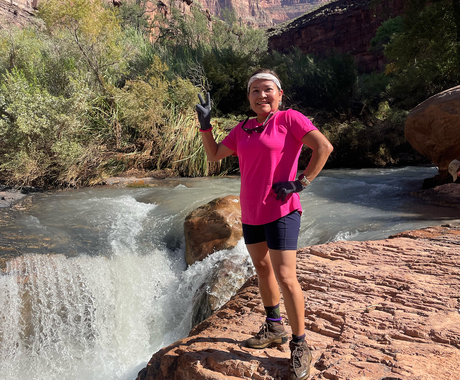By Gladys Godinez, former staff member
Rural Nebraska, home to many diverse people, is now being showcased in a new book created by students and faculty at Hastings College.
Dr. Jessica Henry, professor of communication studies and director of the Women’s and Gender Studies Program, brought the idea to students and staff. An idea that was inspired by “Faces of Change,” from Pelican Rapids, Minnesota, where the library director saw changes in demographics in his town and wanted to build a bridge between cultures.
Dr. Henry had a vision of collaboration within the college and the community of Hastings to showcase what Hastings is and its diversity.
This vision became reality with the help of 35 students from three different classes; intercultural communication, cultural anthropology, and English and graphic design. The exhibit, showcased at Hastings Museum, runs through June 2, and was made possible by the Hastings Museum, Hastings Community Foundation, and the Center for Rural Affairs.
An example of what you may see at the exhibit is a picture of Jose Jimenez and his story:
My name is Jose Jimenez. I was born in Long Beach, California. At about three months I moved to Mexico and that’s really where I grew up. I tell people I grew up in Mexico because the first nine years of my life were in Mexico. Then [I] moved back to Long Beach, California, and did most of my teenage years there, until about 15 when I moved to Lexington, Nebraska. Lexington is where I started getting more acquainted with school. Prior to Lexington, and prior to [age] 15, school wasn’t a priority. But, at 15 I started to invest in myself a little more, and then ultimately made it to Hastings for college.[..] I am currently working for a nonprofit based out of Lincoln. We work outside of Lincoln and Omaha in [the] whole state, fighting for and educating people on immigrants and the positivity that they can bring. Seeking common sense immigration laws is what I’m dedicated to now. I’m dedicated to strengthening community.
This amazing exhibit shows the spirit of Hastings and its continued work toward making the community more inclusive. The Center for Rural Affairs was able to help in finding interviewees and by co-hosting the opening ceremony. We love seeing rural Nebraska take steps toward becoming more welcoming and inclusive to our neighbors.
Click here for more information on the exhibit at Hastings Museum.





